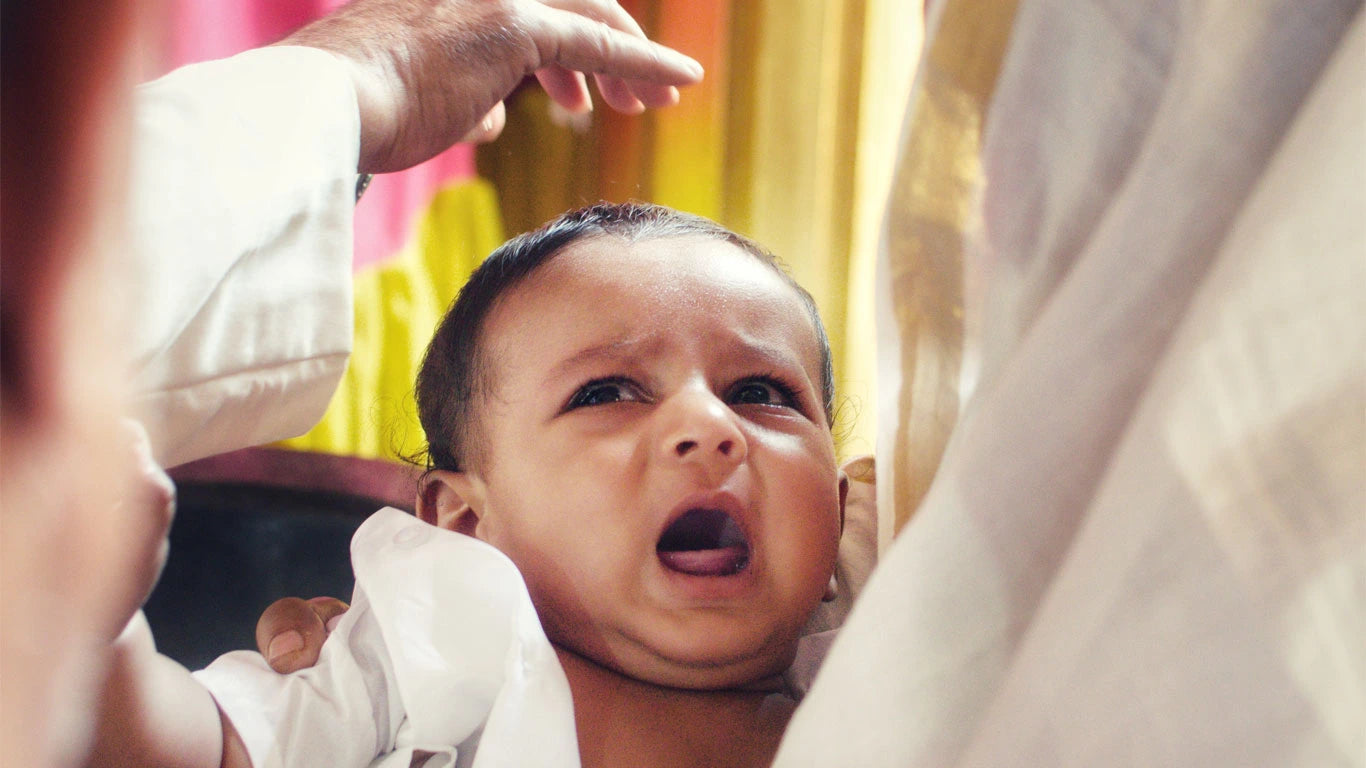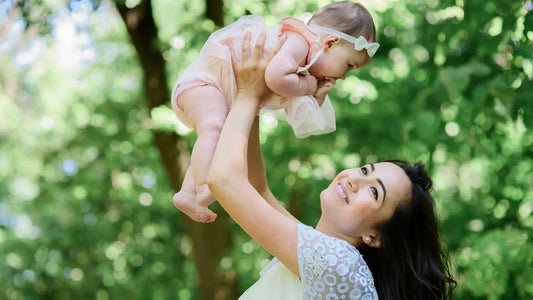The mundan ceremony: A complete guide for new parents
Babies' first experiences are always unique and remarkable. And Mundan is also one of them. The highly auspicious mundan ritual is also called choodakaran or chaul. It is a significant part of Hindu culture, as Mundan sanskar is the most important among the sixteen sanskars in Hinduism. It refers to shaving your baby’s head for the first time for logical and scientific benefits.
Through this blog, let’s learn everything you need to know about the ritual!
What is mundan ceremony?: Origin and Introduction.
The mundan ceremony is the most meaningful ceremony for a newborn. It involves shaving the head of a newborn baby, usually around the age of 1-3 years. Some parents prefer to do it at a later date when the baby gets older; it is optional and completely up to the parent. In Hindu culture, it is believed that this ceremony purifies the child from a past life, gets rid of evil eyes or presence, and blesses them with a good future and health.
It also holds significance in Ayurveda; it is believed that shaving the head opens the crown chakra, enhancing the body’s energy flow, and is vital for mental and physical health. It’s also believed that shaving off your baby’s head helps regulate body temperature and promotes healthy, dense hair with even hairline. Along with Ayurveda and Hindu culture, it is proved in science also that mundan has many clinical benefits, like better hair growth and better circulation, and helps in reducing pain while teething.
Typically, family members, friends, and a priest come together to offer blessings and prayers on this special day. The Mundan plays a significant role in a baby's life.
Complete guide to do the Mundan ceremony.
The mundan ceremony, the first ritual of the baby, is a precious and significant ceremony for the baby and the parents, as it marks the first milestone of the baby and is believed to be a mentally and physically purifying process.
Following are some steps that every new parent should keep in mind
- Choosing an ideal date: Generally, it is suggested to do the ceremony at an odd number of months or years, like at the age of 7, 9, or 11 months. Parents usually prefer to decide on a date with the advice of a priest and follow the “shubh muhurat,” but it is completely preferable.
- Deciding a perfect place: Some parents perform the ritual in religious places like temples, which provide sacred environments. Some prefer to hold the ceremony at their home for an intimate setting, while others complete the ritual at pilgrimage places for spiritual energy and blessings; you can choose whichever suits them best.
- Giving Invitations: On this beautiful and special occasion, along with the priest, parents invite family, relatives, and friends to be a part of their special day and celebrate the occasion along with them. While some host a grand celebration, others like to keep it intimate and invite only close ones. Both are good, and parents should do whatever suits them the most.
- Performing the ritual: On the occasion, everyone, including the priest, family, and relatives, gathers together. The priest performs Havan, and afterward, the mother holds the baby. The priest gently cuts some hair from the baby, and the barber continues to shave the rest.
- Aftercare for the baby: After the ritual is completed, the baby's shaved head is washed with Ganga water, which is also considered holy in Hinduism. Later, sandalwood and turmeric are applied to the baby’s head to avoid infection. Heal cuts and reduce the itching caused by shaving on the baby’s delicate skin. For aftercare, we should always focus on the hydration of the baby by using the best organic baby skin care products in India.
Clinical facts and benefits of the ritual
While there is no direct scientific reason, there are many practical and clinical benefits of mundan:
- It is proven to promote healthy, dense hair and even hairline.
- Doing mundan supports the development of nerves in the brain.
- It is clinically proven that vitamin D is absorbed faster in babies when exposed to the sun with a shaved head.
- It provides coolness in the body and brain during the summer.
- It is said to tone the pain down when the teething starts.
Tips and precautions on Mundan ritual
- Proper rest for baby: It is essential to let the baby fully rest before and after the ritual.
- Hire a well-trained person: Hire a trained and experienced person to perform the ritual to avoid accidents.
- Clean the tools: It’s essential to use clean and sterilized tools like razors, blades, etc.
- Maintain a baby-friendly environment: It is important to keep calm and at ease and maintain a spacious environment so it does not feel startled.
- Avoid mirrors: Avoid showing the baby a mirror (if the ritual is done in a saloon) because the baby might get scared of seeing their image; usually, babies are scared of haircutting.
Conclusion
The mundan ceremony, being the first-ever ritual of a newborn, is a significant and joyful ritual for family, relatives, and friends as it marks a milestone for the baby and the parents. It is a delightful experience and is believed to purify the child, get rid of the evil eyes or evil presence, and bless the child with a good future. While you should be careful and take precautions to ensure child safety. It is meant to be a good and stress-free experience to enjoy the baby’s growth and milestones together in a gathering, and it's all up to parents about what and how they want to perform it.
Shop for the Best Baby Care Products
FAQs
Q1: How to take care of the baby after mundan?
Ans. Make sure to soothe the scalp by washing the head gently and removing any left hair, then apply moisturizer to tone down temperament, and lastly, protect the baby from direct sun exposure.
Q2: Why is it suggested to perform the ritual in an odd number of months or years like 7, 9, and 11?
Ans. An odd-numbered year is believed to symbolize the transition from infancy to childhood, making a significant milestone in the child’s life journey.
Q3: What oils are best to apply to a baby’s scalp after mundan?
Ans. Cold-pressed oils that provide nutrients and coolness to the scalp like coconut oil, almond oil, and lavender oil are recommended.




